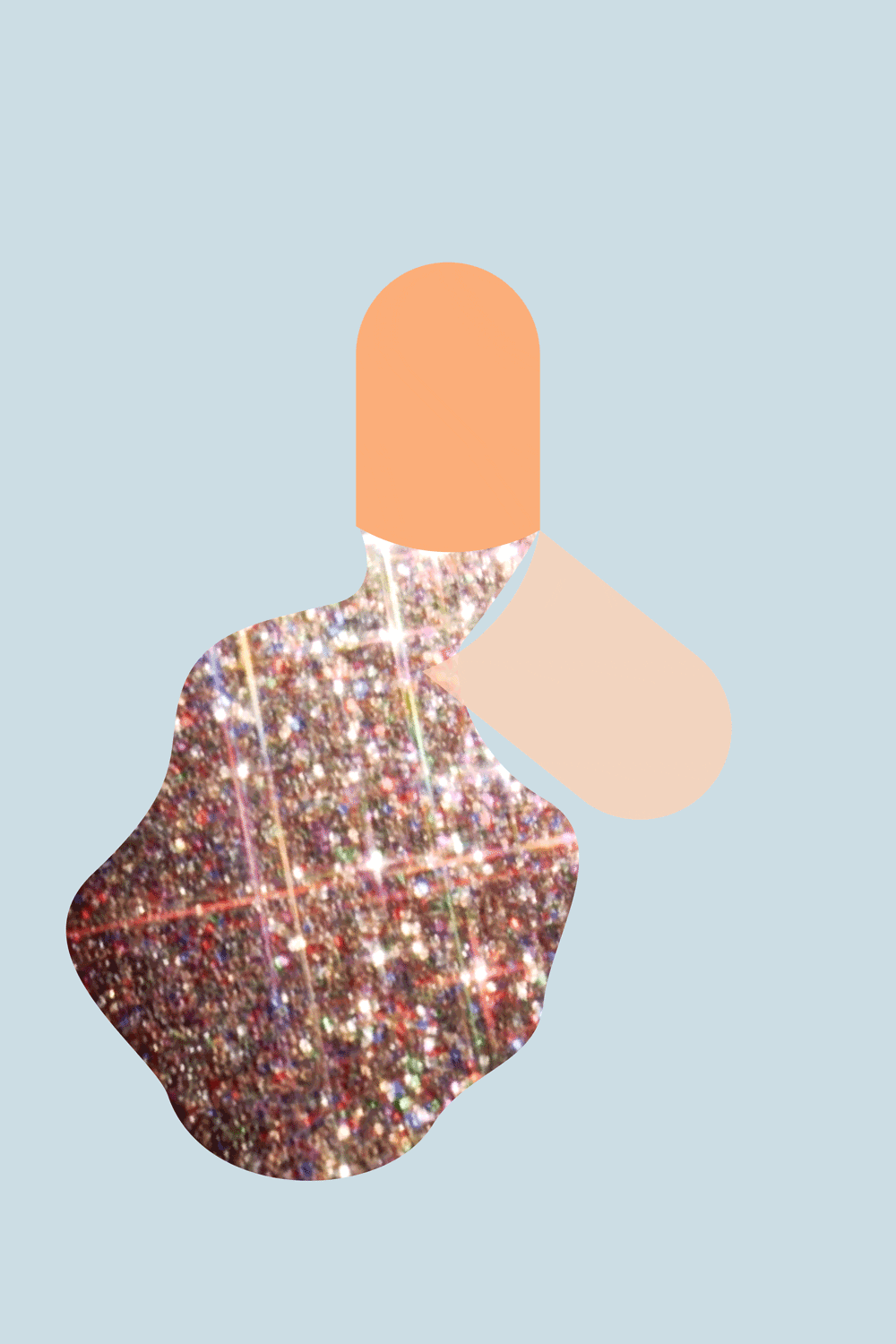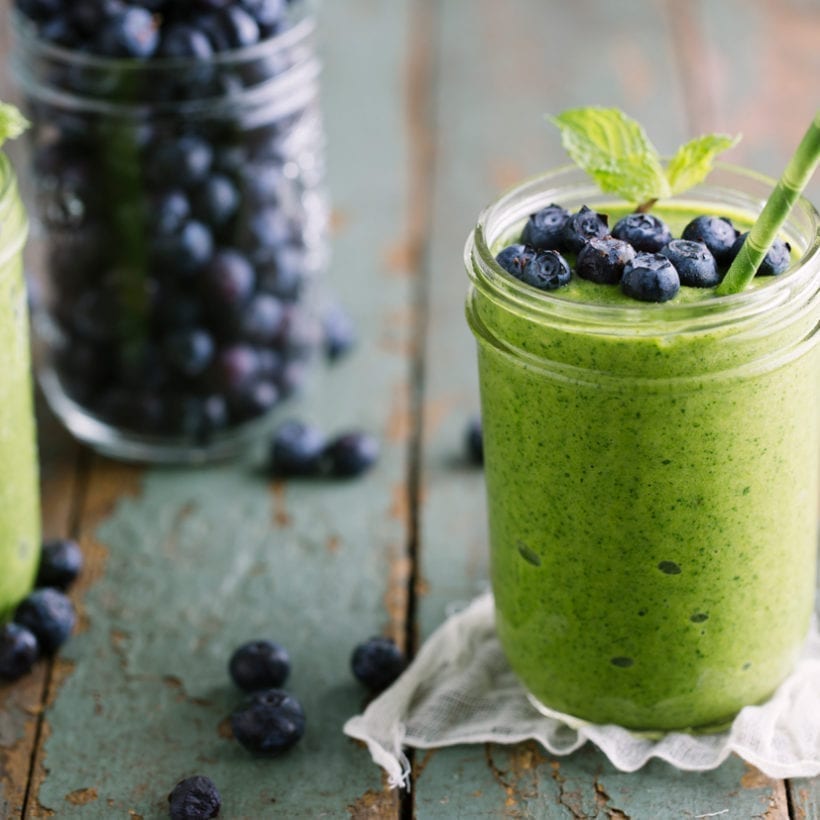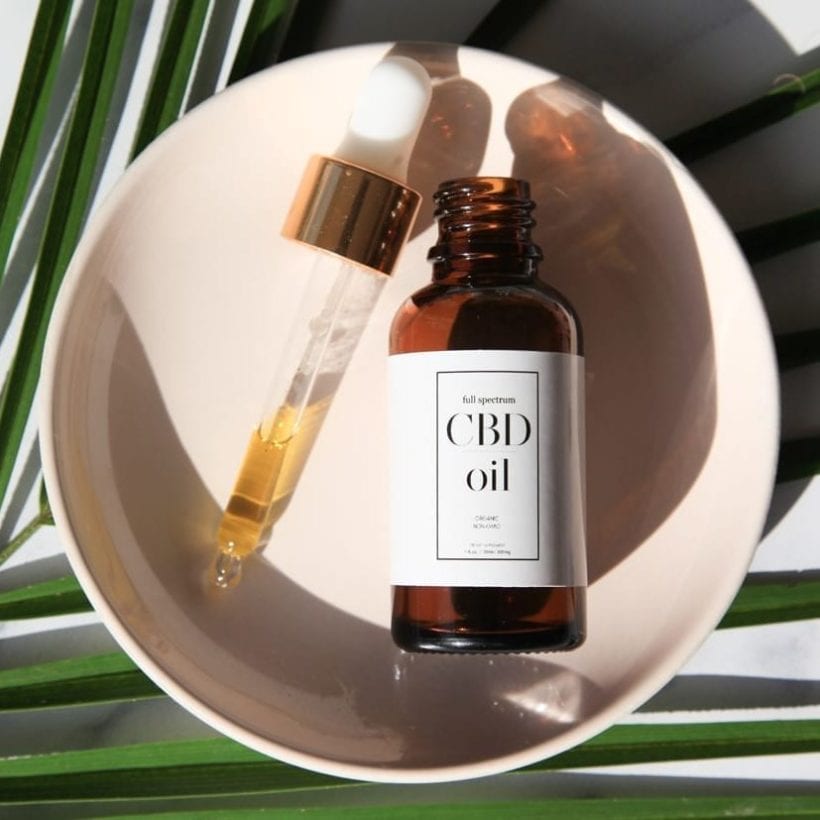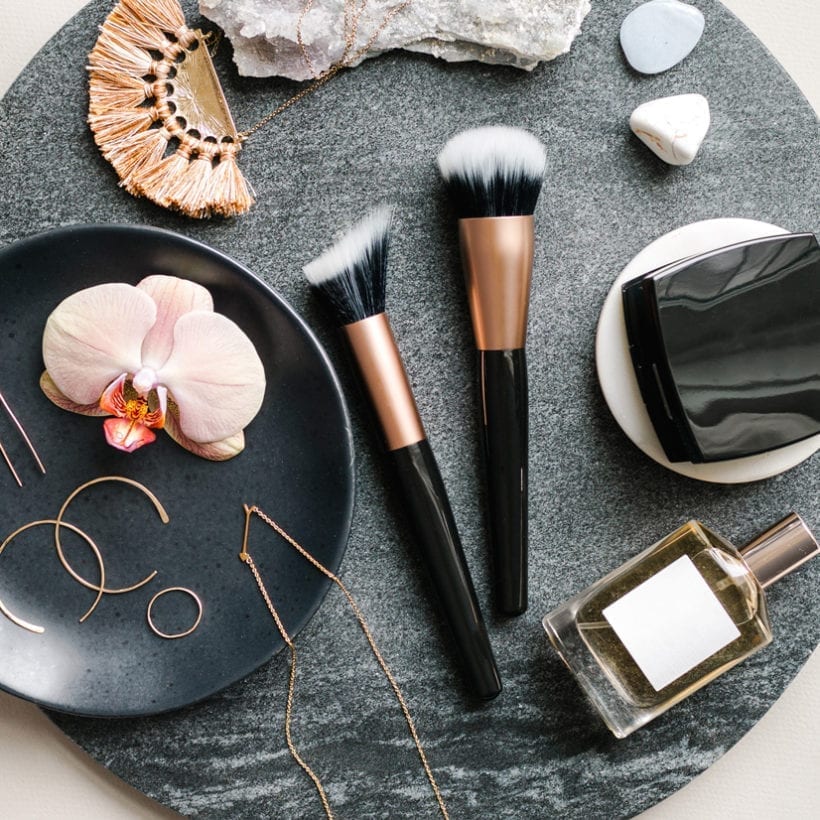Collagen is having a huge moment in the beauty and wellness space. In fact, the market is expected to reach $6.63 billion by 2025. And partly responsible for the growth? Ingestibles in the form of collagen powders, supplements and even waters — and the buzz around them is getting even bigger, thanks to celebrity endorsements and social media.
Because of the abundance of collagen products, it can be challenging to separate the gimmicks from what actually works. So, we asked the experts about all things collagen.
Why Should You Care About Collagen?
Collagen is a protein found in your body that is responsible for your skin’s plumpness, firmness and overall structural support. It is one of the main structural proteins of the skin, comprised of amino acids, explains Kelly Dobos, a cosmetic chemist. “It gives your skin strength and flexibility, and [it] is also an important component of connective tissues and ligaments,” she says. Overall, collagen is responsible for your skin’s youthful appearance.
When you hit your mid-twenties, you start losing collagen faster than it is being replaced.
But when you hit your mid-twenties, you start losing collagen faster than it is being replaced, says Dobos. “It’s part of the normal aging process,” she says, “because different metabolic processes slow down as you get older.” Not to mention, sun exposure also plays a big role in collagen loss, resulting in about 90 percent of skin aging. Every time you are exposed to UV rays, the collagen elastin fibers break down over time, becoming weaker and leading to wrinkles and saggy skin.
According to dermatologist Amanda Doyle, M.D., “there’s nothing we can do to stop the clock” when it comes to collagen, but there are some things you can do to hold onto more collagen. There are skincare ingredients that have been shown to improve collagen production and boost elasticity. The most popular is vitamin C, says both Dobos and Doyle.
A study published in The Journal of Clinical and Aesthetic Dermatology found that vitamin C aids in the collagen process by creating more of it through a process called collagen synthesis. Glycolic acids and retinoids (derived from vitamin A) are also effective for stimulating collagen production, says Dobos.
Do Collagen Supplements Really Work?
Typically derived from animals or fish flesh, these ingestibles contain small chains of amino acids called collagen peptides, and consuming them daily promises fewer wrinkles and fine lines, along with other nutritional benefits.

But some experts are skeptical of their effectiveness. There is very little research about how effective they actually are, and there is uncertainty as to how these collagen supplements are being digested in the body. “It’s extremely unlikely that collagen will make it through the highly acidic stomach,” says Dobos. When consuming collagen supplements, they break down as fragments of protein and amino acids (not necessarily collagen), and there is no way of knowing where that protein is making its way in the body. So, it might not be targeting your skin at all.
If you love your supplements, do not worry: The studies that are out there provide some positive results. A 2014 study found that women who took a collagen supplement once a day for a month saw an improvement in their skin’s moisture levels and elasticity. In another 2019 study, women saw a major improvement in skin’s appearance, citing fewer wrinkles and roughness, after ingesting fish collagen hydrolysates (another type of collagen) daily for four to eight weeks. Keep in mind that the results are subjective, but Doyle believes that with further research, they could be reputable.
Are They Safe to Try?
If you are curious about trying collagen supplements, there is no harm. Most ingestibles are safe, as long as you get one that is regulated by the Food and Drug Administration and from a reputable brand (Doyle recommends NeoCell). Look for certifications such as NSF or UL to ensure you are getting the best quality, adds Dobos.
The Bottom Line
Skincare ingredients with retinoids and vitamin C have a track record for improving collagen production. And while the science behind supplements and powders is still unknown, there is no harm in incorporating one to your diet. “A topical antioxidant or vitamin C, a topical retinoid and a sunscreen are the three main components of any good anti-aging regimen,” says Doyle
We only recommend products we have independently researched, tested and loved. If you purchase a product found through our links, Sunday Edit may earn an affiliate commission.







